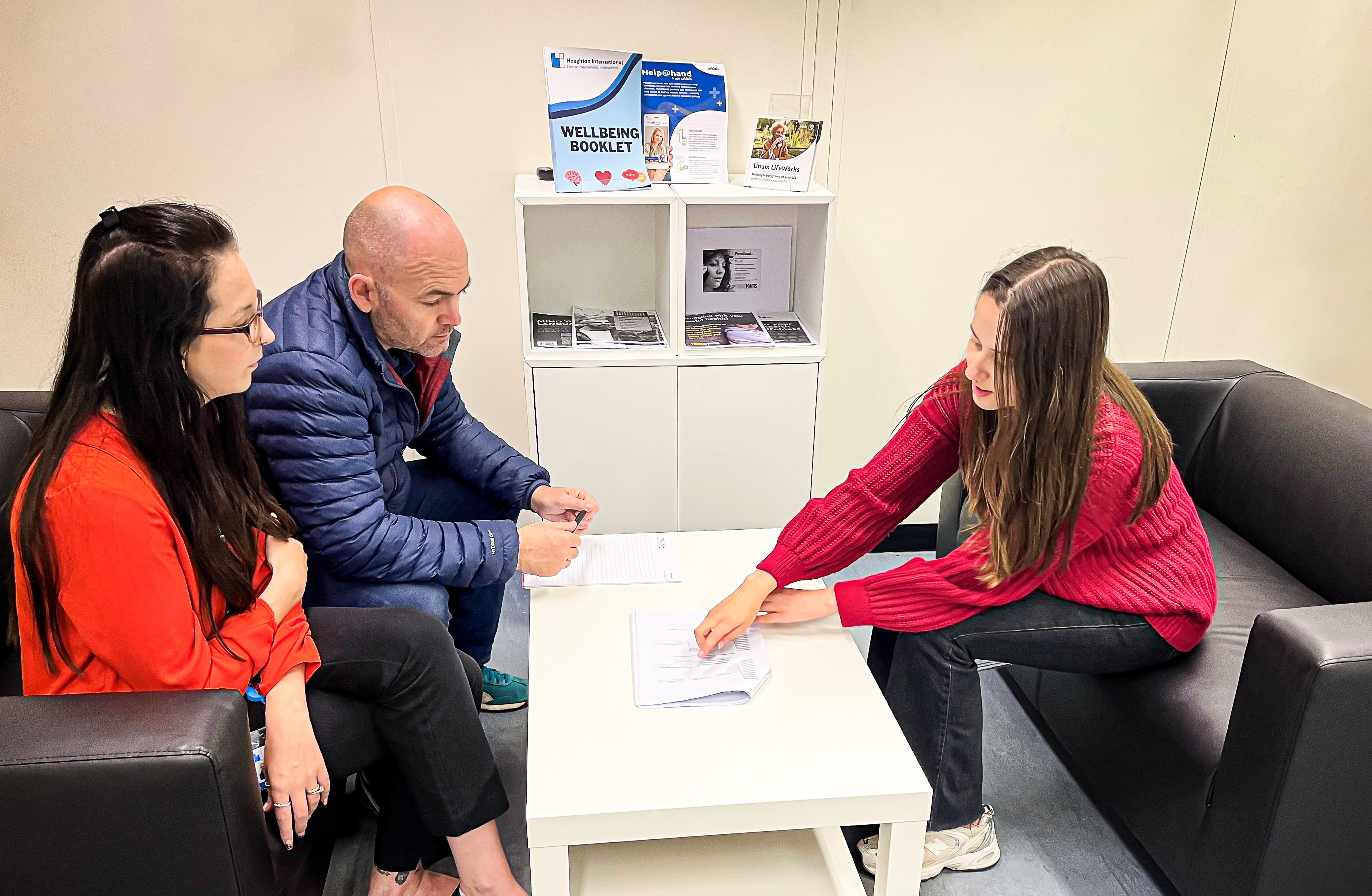[Newcastle-upon-Tyne, 04.12.23] – In the face of the pressing climate crisis, it is imperative that businesses take proactive measures to limit their carbon impact and avoid exacerbating man-made climate change.
Houghton International, one of the world’s leading electro-mechanical service providers, is taking decisive steps in partnership with Newcastle University to demonstrate its commitment to environmental responsibility and contribute to the global fight against climate change.
Anna McKenzie and Cara Greene, two students completing a Master’s degree in Sustainable Chemical Engineering at the university, completed studies to investigate the environmental impact of the organisation’s Byker-based facility. The investigation uncovered invaluable data on the business’s carbon emissions, confirming the sustainability of its repair service and providing a foundation for further process improvements.
As part of her thesis, Greene analysed the company’s gas and electricity consumption to estimate the facility’s carbon footprint. Meanwhile, McKenzie used life cycle assessments to compare the environmental impact of repairing electro-mechanical motors and generators versus replacing these assets with new units.
Motors and generators do not directly emit greenhouse gases during operation. However, the entire life cycle of such assets, including extracting and processing the raw materials, manufacturing the original unit and shipping it to its final destination, requires significant upfront carbon emissions.
Houghton International has long argued that the best way to reduce emissions is to reduce the need to manufacture new assets by extending the life of existing ones.
The views of the service provider were confirmed in McKenzie’s thesis, which analysed a wide range of factors and calculations in various scenarios. She explained, “Under the circumstances outlined in the scope of this dissertation, the LCIA results show that the scenarios in which Houghton International repairs the assets have a lower global warming potential [lower fossil fuel use] than scenarios in which the original asset is replaced with an equivalent, brand new asset.”
McKenzie explains, “It was clear that, over the 20-year use period examined for each of the scenarios, the process which contributed the most to global warming potential was the acquisition of raw materials and pre-processing for the manufacture of the initial/replacement asset.”
Michael Mitten, the CEO of Houghton International, expressed his dedication to this initiative, stating, “After 39 years of operation, our electro-mechanical repair facility has become one of the most reliable in the industry. It’s satisfying to have detailed data confirming our expectation that repairing motors and generators is significantly better for the environment than replacing them with new assets.”
He continued, “This data now empowers us to showcase the effect of our endeavours, encouraging businesses across diverse sectors to embrace eco-conscious decision making.”
These findings come on the heels of Houghton International’s recent announcement of opening the world’s first end-to-end wind turbine repair service – which came after innovative work with Faroe Island’s largest energy provider.

